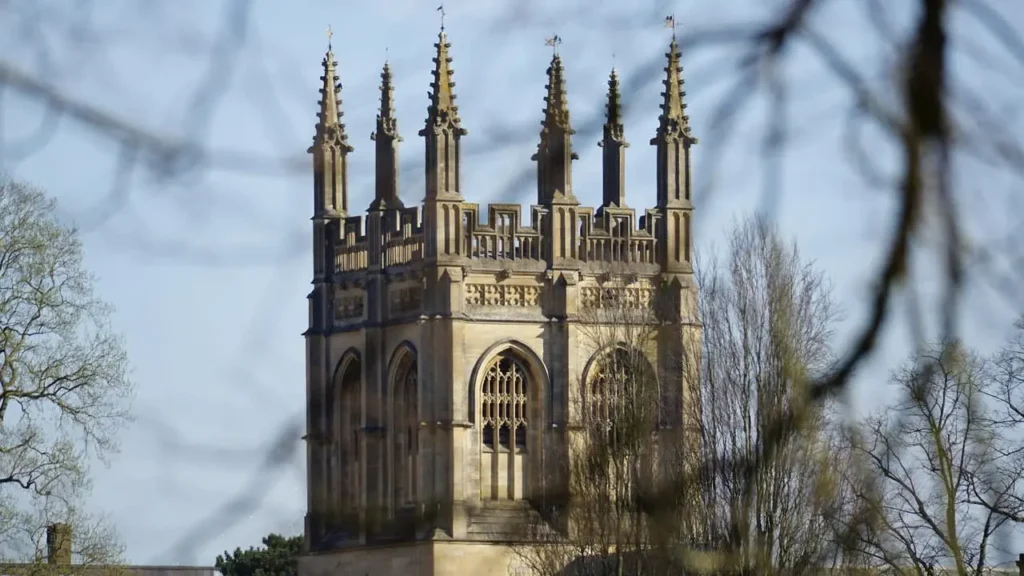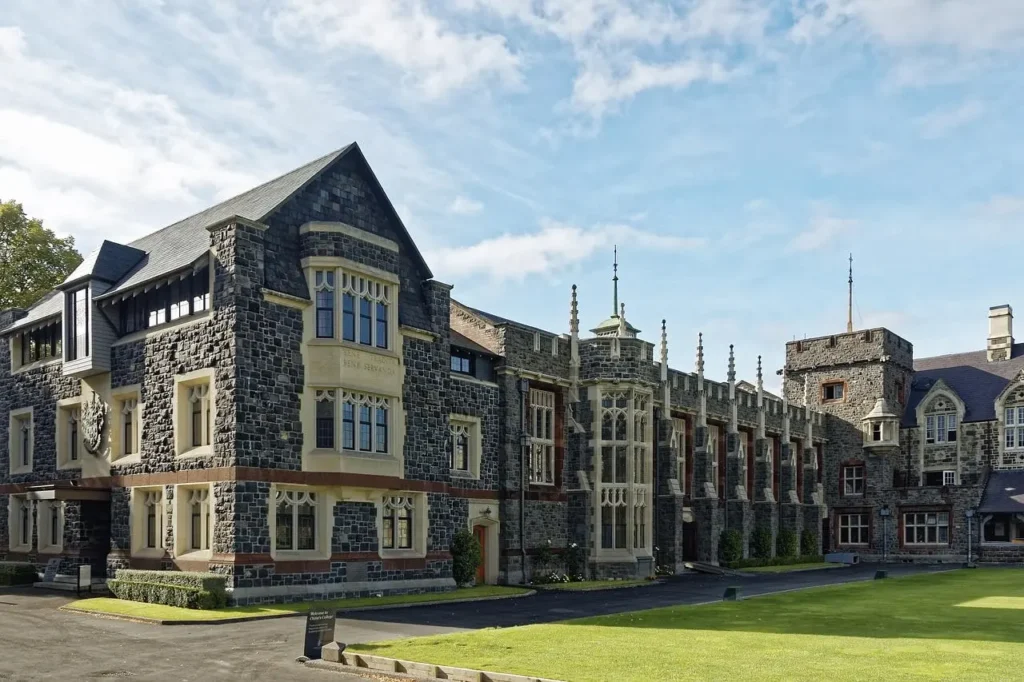Applied Landscape Archaeology MSc
Oxford University’s Applied Landscape Archaeology MSc is a part-time taught program catering to students, employees, and anyone who has a personal or professional interest in landscape archaeology. The program is primarily on geography in the British landscape, and consists of fieldwork, digital mapping, geophysics, and a final dissertation.
Landscape archaeology has become a recognized multidisciplinary field. It employs a multi-period approach to analyze the effects of human behavior on socio-economic resources, topography, and the environment on and off the coast and in urban and rural areas. Various technologies such as digital mapping, geophysics, and LIDAR work with older methods of landscape archaeology such as landscape archaeology, fieldwork, and selective excavation. Students learn landscape surveying, characterization, and reporting which are useful skills in resource planning, tourism, outreach, and education.
Explore more Oxford University Courses.
Course structure
This course integrates academic learning with practical fieldwork, and students must have prior archaeology knowledge at the undergraduate or postgraduate level to take this course. The key points of the Applied Landscape Archaeology MSc course are:
British archaeology is the main concentration, with some research into the students’ chosen landscape.
Strong emphasis on research application in a variety of landscape contexts.
You’ll be able to follow your research interests and write a 15,000 word dissertation.
Teaching blends lectures, seminars, field trips, and practical work, all supported by a Virtual Learning Environment (VLE).
You are expected to study on your own, whether in a library or at home, for a lot of the time.
You are welcome to join other archaeological fieldwork or research, although extra department resources will not be given. Department resources will mostly be for course-related work.

Attendance
This is a part-time course, mostly held on Saturdays, from 10 am to 4 pm. There is also a landscape survey training week in Year B (from Saturday to Friday). Students are expected to arrange accommodation for that week, but instructions are given long before.
Resources to Support Your Study
Graduate students can access the Bodleian library system, the biggest library system in the UK.
IT Services – Core university IT systems, learning support, and technology guidance for new students.
Departmental Facilities – Field survey equipment, GIS, and geophysical tools and software which for geophysical tools and software, available after training or experience.
Field Teaching Support – During the Year B training week, students coordinate the transport and accommodation for minibus trips to field locations.
Rewley House Continuing Education Library – Alongside the Jessop Reading Room, this library houses 73,000 books, periodicals, and electronic resources, not to mention the many PCs available.
Graduate School – For 70 doctoral researchers and 600 taught students, it enriches the environment for social and intellectual engagement.
IT and Blended Learning Facilities – Student Computing Facility and Virtual Learning Environment resources blend online and in-person study.
Rewley House has 35 en-suite study bedrooms, a dining room, a Common Room with bar facilities, and other amenities to promote a comfortable learning environment.
Supervision
Course Directors supervise graduate students. When the topics are approved, usually early in the second year, dissertation tutors are assigned. Students have 4–6 consultations, online or in person, with their dissertation tutor.
Assessment
The course assessments include:
Written assignments for Core Papers (Term One, each year) – two assignments are required for each paper.
Advanced Papers (Terms Two and Three, each year) – one assignment is required per paper, and the Digital Landscapes paper is submitted in two parts.
Optional advanced papers may be replaced with flexi-placement assignments.
Landscape survey training week – topics are assessed through a practical logbook.
Dissertations are research projects that require 15,000 words.
Oral exams are required to complete the course.
What do graduates do?
Some alumni go on to DPhil/PhD programs at Oxford or other universities.
Some pursue careers in the UK and European heritage sectors. These include positions at Historic England, the National Trust for Scotland, Oxford University Archaeology, the National Museums Liverpool, the Ministry of Defence, the National Maritime Museum, and various regional heritage services.
Some graduates perform teaching, policy, or landscape management roles and use the course skills to do that.
Some engage in commercial consultancy and field practice, including participation in the Portable Antiquities Scheme.
Course Changes
Though the Oxford University tries to deliver the course in the manner specified, certain circumstances may lead to changes. These may include pandemics, visa, or student health issues. Changes in supervision may also happen as a result of illness, sabbatical leave, or other reasons. For complete information, check the University student contract and course change policy.

Course structure
Compulsory study
The course design requires you to complete a guided dissertation and personal tutorial with your Course Director and/or dissertation tutor.
Options
The flexible format of this course is meant to sustain the student’s research interest to the extent necessary to complete a 15,000 word dissertation. That focus can be on a theme, area, or subject within Britain or beyond.
2026–27 Entry requirements
Outstanding academic record
An applicant is expected to prove and demonstrate the potential for academic excellence. Degree-level qualifications:
First-class or upper second class undergraduate degree with honours in archaeology or a related subject (e.g. history, historic environment, geography, environmental science).
FHEQ Level 6 Advanced Diploma or a relevant postgraduate qualification in archaeology or associated fields.
BA/BSc combined honours or PGCERT may be accepted.
GPA of 3.6/4.0 for USA applicants.
Other qualifications and experience
Profound field and professional archaeology experience.
Experience in excavation, survey work, or processing data. Publication is not required.
English proficiency
IELTS Academic: 7.5 overall, 7.0 in each component.
TOEFL iBT: 110 overall (Listening: 22, Reading: 24, Speaking: 25, Writing: 24).
C1 Advanced 191 (185 components).
C2 Proficiency 191 (185 in each component).
Oxford Test of English Advanced: 165 (with 155 in each component).
Extenuating circumstances
If there are issues regarding COVID-19 or other exceptional circumstances, applicants may declare this in the application.
References
Three are needed, with at least two being academics.
References must speak to intellectual ability, academic achievement, motivation, and collaboration with others.
Supporting documents
For university-level courses, official transcripts with grades and certified translations.
Personal statement, 500 words max, describing motivation, experience related to the application, and areas of study of interest.
Written work. Two submissions of 2,000-2,500 words each, which demonstrate scholarly potential.
Performance at interview
There’s a 30-minute interview with two staff members. This can be in-person or online.
All applicants will get an invitation, but not an offer!
Interviews check how much you want to study, and how much you understand what the course will take.
Offer conditions
All successful applicants must meet academic, financial, and disclosure conditions:
Declaration of Financial Resources – confirming you have funding.
Disclosing criminal convictions – only unspent, relevant convictions.
The university’s ability to supervise students.
Availability of funding
There are over 1,100 Oxford scholarships for 2026–27 for graduate courses.
If you apply before January, you will be considered for scholarships.
You may have access to other external funding, loans, and scholarships.
Costs
2026–27 Academic Year Course Fees
Home: £5,790
Overseas: £15,190
Your fees cover teaching, academic assistance, and facilities, but not accommodation, room and board, or research costs.
Additional expenses
Your accommodation, transportation, and other costs associated with attending Oxford University for ~20 days per year will change.
You will also incur other costs associated with your dissertation.
Estimated living expenses for the 2026-27 academic year: £1,405–£2,105
Food: £315–£545
Accommodation: £825–£990
Personal items: £160–£310
Social activities: £50–£130
Study costs: £35–£90
Other: £20–£40
Preference for College
Students are attached to a department/faculty and to a college.
The colleges you can choose from for this course are:
Blackfriars, Campion Hall, Harris Manchester College, Kellogg College, Regent’s Park College, Wycliffe Hall.
Before You Submit
Review the guidance regarding your application and its deadline as well as how competitive your application will be.
The application costs £75, and you can apply for a fee waiver if you are eligible.
Feel free to contact the Course Administrator if you need help.
Fill out your application
You will need three referees, but at least two should be academics.
Letters of reference
Official transcripts – with certified translations if applicable.
Personal statement – max 500 words.
Written work – two submissions, 2,000–2,500 words.
Make sure you follow the university’s submission guidelines.
Final Thoughts
The MSc in Applied Landscape Archaeology at Oxford University offers a unique blend of academic rigor and practical experience, tailored for part-time students with a passion for understanding human interaction with landscapes. Through advanced research methods, fieldwork, and a focused dissertation, students gain the skills and expertise necessary for careers in heritage management, academia, and applied archaeology.
With access to Oxford University world-class resources, expert supervision, and a supportive graduate community, this program equips students to make meaningful contributions to the study, preservation, and interpretation of historic landscapes. Whether advancing to doctoral research, joining heritage organizations, or enhancing professional practice, graduates leave with a comprehensive understanding of landscape archaeology and the tools to shape the future of the field.
